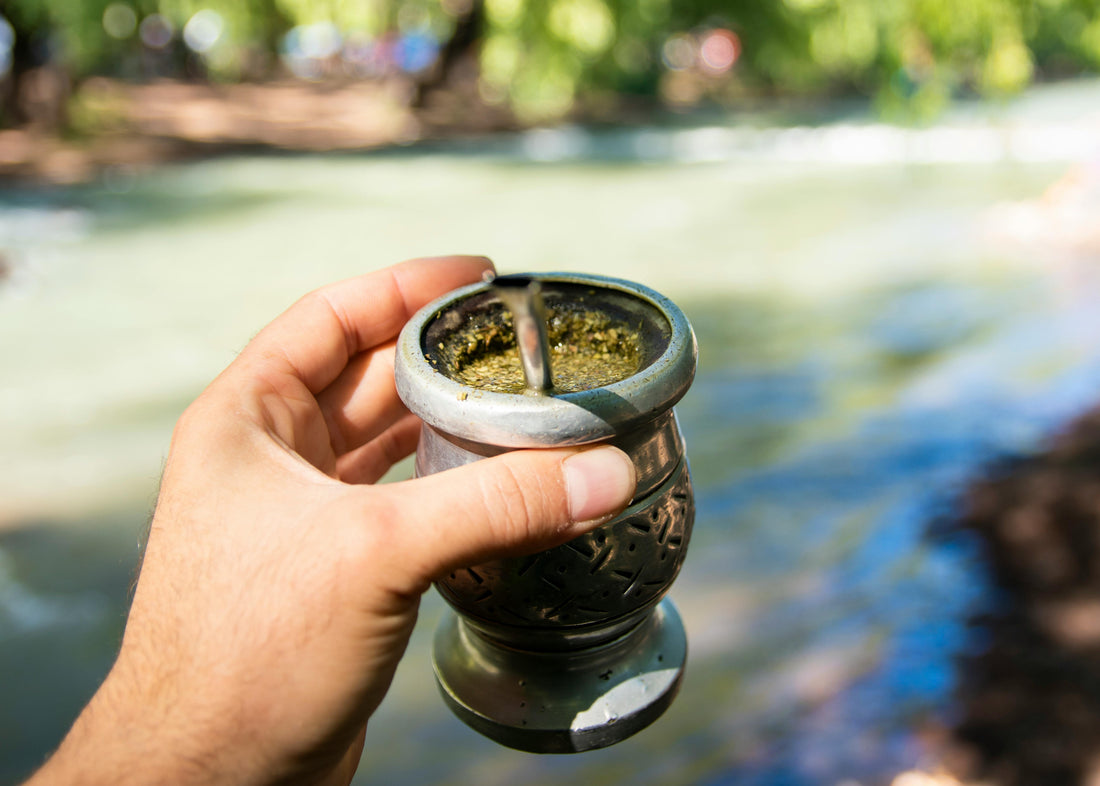
30 Argentinian Sayings That Showcase Its Passionate Spirit
Share
Argentina is a country full of passion—whether it's the electrifying energy of a football match at La Bombonera, the sensual embrace of a tango in San Telmo, or the animated conversations echoing through a café in Buenos Aires. The Spanish spoken in Argentina, commonly known as español rioplatense, is not only distinct in accent and intonation, but also brims with colorful expressions that showcase the Argentine sense of humor, intensity, and creativity.
Mastering these local sayings is key if you want to blend in and truly connect with Argentinians. Here’s a deeper dive into 30 essential Argentinian expressions, what they mean, how to use them, and the cultural flavor they carry.
1. ¡Che!
This one word can practically sum up Argentina. Che is used to call someone's attention or simply as a casual way to address a friend. It’s the Argentine version of “hey,” “dude,” or “mate.”
Example:
Che, ¿qué hacés esta noche? (Hey, what are you doing tonight?)
Interestingly, Ernesto "Che" Guevara got his nickname because he used this word so often.
2. No da
A concise phrase that means something is inappropriate, inconvenient, or just doesn’t fit.
Example:
No da salir sin abrigo con este frío. (It’s not okay to go out without a coat in this cold.)
You’ll hear no da in casual conversations when someone disapproves of a plan or behavior.
3. Estar al horno
Literally, “to be in the oven,” this idiom paints a vivid image of being in hot water or a sticky situation.
Example:
Si no termino el trabajo hoy, estoy al horno. (If I don’t finish the work today, I’m in big trouble.)
4. Es un quilombo
Derived from a Quechua word meaning “mess,” quilombo now refers to any chaotic or complicated situation. It can also mean a big problem, depending on the context.
Example:
Este proyecto es un quilombo, nadie entiende nada. (This project is a mess, no one understands anything.)
5. Mandar fruta
This quirky phrase literally means “to throw fruit,” but it’s used when someone talks nonsense or makes things up.
Example:
No le creas, está mandando fruta. (Don’t believe him, he’s talking nonsense.)
It's a playful way to call out exaggeration or bluffing.
6. La posta
La posta refers to the truth, the real deal, or the best option available.
Example:
Probá esta pizza, es la posta. (Try this pizza, it's the best.)
7. Ser un capo
Used to praise someone’s skills or personality. A capo is like a “boss,” someone admirable or competent.
Example:
Juan es un capo programando. (Juan is a boss at programming.)

8. Tener mala leche
This can mean having bad luck or, in some cases, being mean-spirited.
Example:
Siempre le pasa algo, tiene mala leche. (Something always goes wrong for him, he’s unlucky.)
Alternatively:
No le hables, tiene mala leche. (Don’t talk to him, he’s got a bad attitude.)
9. Estar en el horno
A more intense version of estar al horno. If you're en el horno, you're in serious trouble.
Example:
Olvidé el aniversario. Estoy en el horno con mi pareja. (I forgot our anniversary. I’m in deep trouble with my partner.)
10. ¡De una!
Enthusiastic agreement. Similar to “Absolutely!” or “Let’s do it!”
Example:
¿Vamos al cine? – ¡De una! (Want to go to the movies? – Absolutely!)
11. Ponerse las pilas
Literally “put in the batteries,” it means to get energized or start putting in more effort.
Example:
Tenés que ponerte las pilas si querés aprobar. (You need to step up your game if you want to pass.)
12. No te calentés
A soothing phrase used to calm someone down. It means “don’t get worked up” or “don’t get angry.”
Example:
No te calentés, seguro mañana lo solucionan. (Don’t get upset, they’ll fix it tomorrow.)
13. Cortar el rostro
Used when someone ignores, rejects, or snubs another person.
Example:
Le mandé un mensaje y me cortó el rostro. (I texted her and she totally ignored me.)

14. Me chupa un huevo
A very informal way to say “I couldn’t care less.” Literally: “It sucks an egg for me.”
Example:
Que se queje, me chupa un huevo. (Let him complain, I don’t care at all.)
15. Más perdido que turco en la neblina
A humorous and slightly politically incorrect expression meaning someone is completely lost or clueless.
Example:
Entró a la clase y estaba más perdido que turco en la neblina. (He walked into class and looked totally lost.)
Learn More Argentinian Spanish with 20 Argentinian Marvels
If you want to discover more about Argentina’s language and culture, 20 Argentinian Marvels is the perfect book for you! Through engaging dialogues and cultural insights, you’ll improve your Spanish while diving into the heart of Argentina.
16. Ser más bueno que el pan
“Better than bread” – it’s a charming way of calling someone extremely kind.
Example:
Mi abuelo es más bueno que el pan. (My grandpa is the sweetest person ever.)
17. Irse al pasto
Literally “to go into the grass,” this idiom means going too far, especially with jokes or behavior.
Example:
El chiste estuvo bien, pero después te fuiste al pasto. (The joke was fine, but then you crossed the line.)
18. Es una papa
Means something is very easy. Papa is potato, but here it means a piece of cake.
Example:
El examen fue una papa. (The test was super easy.)
19. Andar a los tumbos
A vivid phrase to describe a rough, unstable period or someone stumbling through life.
Example:
Desde que se quedó sin trabajo, anda a los tumbos. (Since he lost his job, he’s been struggling.)
20. Está para el cachetazo
Used when someone is clearly having a terrible day, or acting in a way that’s irritating.
Example:
Hoy no acierta una, está para el cachetazo. (He can’t get anything right today.)

21. Hacerse la película
Used when someone is imagining exaggerated or unrealistic scenarios.
Example:
No te hagas la película, seguro no era nada. (Stop imagining things, it probably wasn’t anything.)
22. ¡Qué quilombo!
An exclamation expressing frustration or surprise about chaos.
Example:
¡Qué quilombo dejaron en la cocina! (What a mess they left in the kitchen!)
23. Tirar la toalla
Borrowed from boxing, it means to give up or surrender.
Example:
Después de varios intentos, tiró la toalla. (After several tries, he gave up.)
24. Ser un caradura
Describes a shameless person, someone with a lot of nerve.
Example:
Le pidió aumento sin trabajar, es un caradura. (He asked for a raise without doing anything – shameless.)
25. Estar pipón
A fun way to say you’re full, especially after a satisfying meal.
Example:
Comí milanesas con papas, estoy pipón. (I had milanesas with fries, I’m stuffed.)
26. No pegar un ojo
Means not getting any sleep at all.
Example:
Con tanto calor, no pegué un ojo. (It was so hot, I didn’t sleep a wink.)
27. Comer como un chancho
Literally “to eat like a pig,” used playfully to describe overeating.
Example:
Ayer en el asado comí como un chancho. (Yesterday at the BBQ, I ate like crazy.)
28. Dormirse en los laureles
To stop trying after some initial success – to rest on your laurels.
Example:
Ganó el premio y se durmió en los laureles. (He won the prize and stopped putting in effort.)
29. Hacer una vaquita
Means to pool money with friends for a shared expense.
Example:
Hicimos una vaquita para comprarle un regalo. (We chipped in to buy him a gift.)

30. Ser un fenómeno
Describes someone who’s outstanding or admirable – a total legend.
Example:
Gracias por ayudarme con la mudanza, sos un fenómeno. (Thanks for helping me move, you’re amazing.)
Why Learning Regional Spanish Matters
Learning expressions like these does more than just improve your Spanish—it lets you step into the rhythm of Argentine life. These phrases carry cultural references, humor, and emotional depth that help you connect more authentically with locals.
Whether you're traveling, working, or just curious about Argentina, getting familiar with Rioplatense Spanish gives you a cultural passport. If you want to explore more of the country’s heart and soul, 20 Argentinian Marvels offers a captivating look into Argentina’s unique landscapes, history, and lifestyle.
Final Thoughts
Argentinian Spanish is rich in expressions that reflect its people’s humor, warmth, and passion. Mastering these sayings will not only enhance your Spanish but also immerse you in Argentina’s vibrant culture. Ready to learn more? Get your copy of 20 Argentinian Marvels today!
